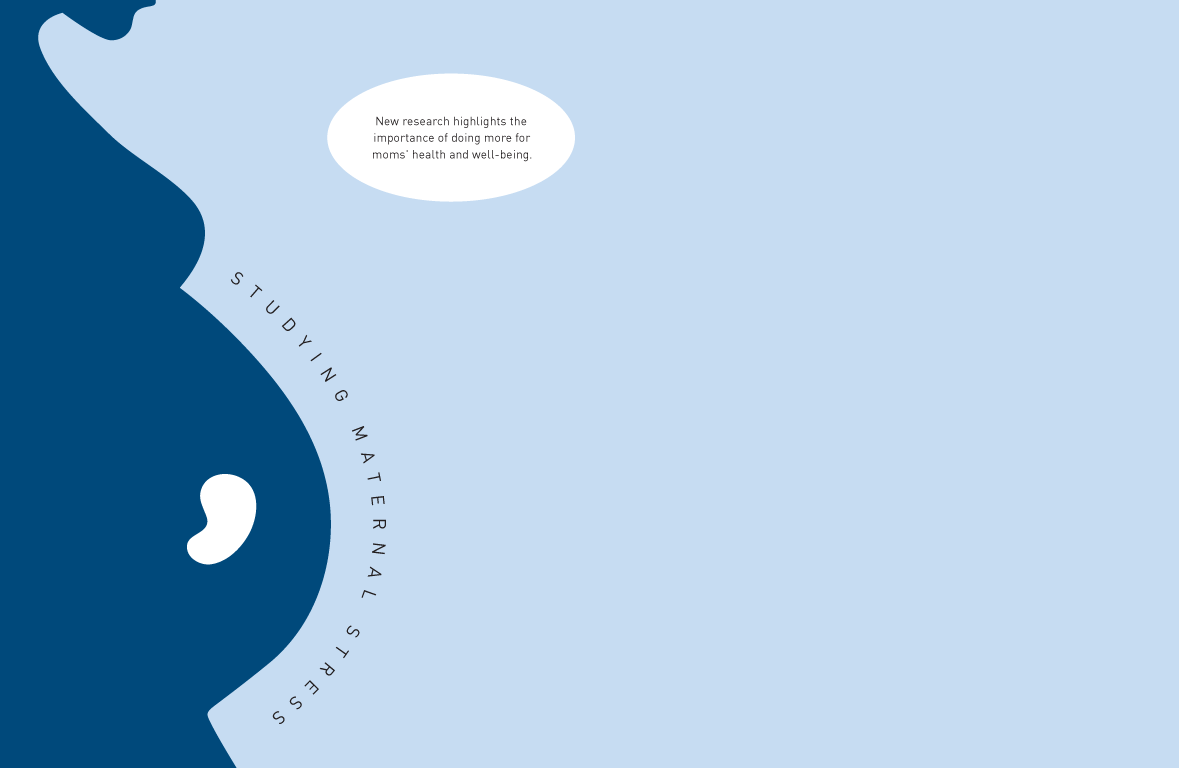Studying Maternal Stress

By Stuart Wolpert
Through their research with women and children, UCLA scientists are homing in on some of the great mysteries of life and some of society’s most pressing concerns.
One example: the question of why some people age faster than others.
A potential answer, a recent study indicates, is that a mother’s stress prior to giving birth may accelerate her child’s biological aging.
Researchers found evidence that maternal stress adversely affects the length of a baby’s telomeres — the small pieces of DNA at the ends of chromosomes that act as protective caps, like the plastic tips on shoelaces. Shortened telomeres have been linked to a higher risk of cancers, cardiovascular and other diseases, and earlier death. The findings are reported in the journal Psychoneuroendocrinology.
“Research on aging is beginning to identify some factors that might put a person on an accelerated aging path, potentially leading to diseases of aging such as metabolic disorder and cardiovascular disease much earlier in life than would be expected,” said the study’s lead author, Judith Carroll, an associate professor of psychiatry and biobehavioral sciences at the Cousins Center for Psychoneuroimmunology.
While several studies have reported that telomere length is shorter in newborns whose mothers reported high stress during pregnancy, this study also measured maternal stress prior to conception and then, once women were pregnant, the researchers followed up in the second and third trimesters. Their analyses identified the third trimester as an especially important period — but not earlier — during which children are at higher risk for shortened telomeres.
Christine Dunkel Schetter, a distinguished professor of psychology and psychiatry and senior author of the study, said the findings support the case for devoting more resources to screening and treatment programs for preconception health and well-being.
The research team followed 111 mothers living in North Carolina, Illinois and Washington, D.C., from preconception until their children reached early childhood. Between the ages of 3 and 5, the children provided cell samples from inside their cheeks, from which the researchers extracted DNA that was used to measure telomeres. They were then able to test for associations of childhood telomere length with the mothers’ stress levels when the children were in utero.
Carroll said, “We see evidence into childhood that telomere length continues to be shorter in those children exposed in utero to maternal stress.
“How does maternal stress alter cellular aging?”
We know that stress can activate inflammation and metabolic activity, both of which, in high amounts, can damage DNA,” Carroll said. “Telomeres are vulnerable to damage and, if unrepaired before cell division, they can become shortened by this damage. During in utero development, we know there is rapid cell replication, and we suspect there is increased vulnerability to damage during this time.”
High maternal stress oftenleads to preterm births
A second UCLA-led study from the same research group found that women suffering from high stress — defined as feeling overwhelmed and unable to cope — during the months and even years before conception had shorter pregnancies than other women. Women who experienced the highest levels of stress gave birth to infants whose time in utero was shorter by one week or more.
“Every day in the womb is important to fetal growth and development,” said Dunkel Schetter. “Premature infants have higher risk of adverse outcomes at birth and later in life than babies born later, including developmental disabilities and physical health problems.”
Dunkel Schetter, who heads the Stress Processes and Pregnancy Lab, which conducted the studies, noted premature birth rates are unusually high in the U.S., compared with other nations with similar resources, and low-income and African American women have higher rates of preterm birth.
“Preventing preterm birth, with its adverse consequences for mothers and children worldwide and in the U.S., is a top priority,” she said.
These results, published in the journal Annals of Behavioral Medicine, are based on extensive in-home interviews with 360 mothers, many of whom live near or below the poverty level. In addition to collecting data on these women’s general stress levels, the interviewers obtained information about various types of environmental stress, including financial worries, job loss, a lack of food, chronic relationship troubles, parenting challenges, interpersonal vi0lence and discrimination.
The researchers found that women who were exposed to the lowest or highest amounts of stress in their environment had the shortest pregnancies, while women who had a moderate level of environmental stress before conception had the longest pregnancies.
“Women exposed to moderate stressors in their environment may have developed coping strategies that serve them well both before and during pregnancy, while exposure to more severe stress challenges even women who normally cope very effectively,” said lead author Nicole Mahrer, who conducted the research as a UCLA postdoctoral scholar in health psychology and is now an assistant professor of psychology at the University of La Verne. She is also a co-author of the other study.
A moderate amount of stress prior to the pregnancy may also help prepare the developing fetus for the environment to come, Mahrer said.
“What we have not known until now,” Dunkel Schetter said, “is whether a mother’s psychosocial health before conception matters for her birth out-comes. This study is among the first to point out that, yes, it does matter. It may even be more influential than prenatal health because some of what is put in motion before conception may be hard to stop during pregnancy. For example, a mother with dysregulated immune function due to stress may be at risk when she becomes pregnant.”
Back to UCLA College Magazine page



